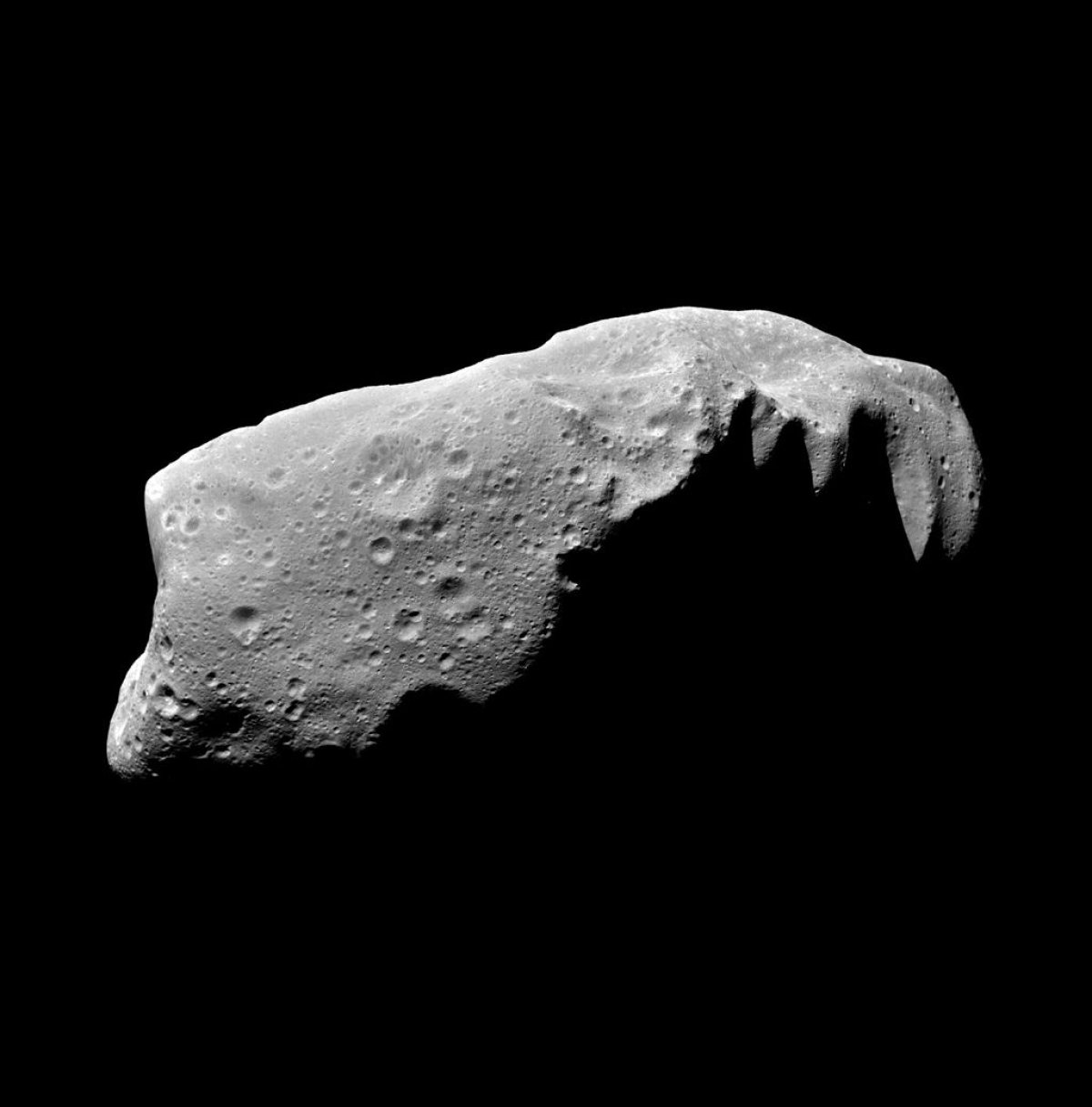For the first time ever, scientists believe they have identified an asteroid born beyond our solar system that strayed into our neighborhood and got stuck. That claim comes just seven months after the stunning discovery of our first interstellar asteroid ever, Oumuamua, which breezed through our solar system on a one-way journey.
The newly studied asteroid, called 2015 BZ509, was discovered three years ago and has always caught scientists' eyes for being a little strange: It orbits the sun in the opposite direction to everything else in the solar system. That's probably because it was born elsewhere and got trapped here, according to a new paper published in the journal Monthly Notices of the Royal Astronomical Society.
That makes the two interstellar asteroids dramatically different. "Oumuamua is a tourist, and BZ is a long-term resident," co-author Fathi Namouni, an astronomer at the Côte d'Azur Observatory in France, told Newsweek.
Namouni and his co-author were interested in a group of objects called centaurs, which hang out in our solar system between Jupiter and Neptune. Because their orbits end up becoming a dance with larger planets, they don't tend to stick around; they spend a few tens of thousands of years in our neighborhood, then get jostled off course and wander away.
So when 2015 BZ509 popped up with its backward movement, Namouni and his co-author wondered if it might be a centaur—but early analysis suggested the object could hold its orbit for a million years, much longer than centaurs usually can. That weirdness caught their attention.
"We were interested in these objects, and we wanted to know where they came from," Namouni said. "We didn't actually think that BZ would turn out to be interstellar in origin."
Both writers approached the problem mathematically, taking advantage of the fact that any asteroid's orbit, no matter how carefully scientists have studied it, has a little wiggle room. They used this wiggle room to run a million different versions of 2015 BZ509's orbit, each a smidge different.
Most of those tiny variations have been hanging out by Jupiter since just after our planets were formed, when everything in our solar system should have been moving in the same direction. Namouni argued that there's nothing that could have knocked an existing asteroid into the wrong direction at that point, and so 2015 BZ509 must have snuck in from another solar system.

The big question now is whether scientists can find any other way to get that backward movement at that time. "The evidence in the embargoed paper is strong evidence that it didn't form in the solar system," Darryl Seligman, an astronomer at Yale University who wasn't involved with the new research, told Newsweek. He expected to see papers suggesting some of those over the next few weeks. When it comes to interstellar asteroids, the quest won't stop there, Seligman said: "I'm sure there will be people looking scouring for more of these."
That will mean 2015 BZ509 and its interstellar predecessor Oumuamua will likely have plenty more company, whether the future visitors are simply passing through or have immigrated to our solar system for the long haul. The latter class could be particularly intriguing because they can't flee from scientists, University of Hawaii astronomer Karen Meech, whose team was the first to spot Oumuamua, wrote in an email to Newsweek.
"If this is correct—that this object was a captured interstellar object—then this is exciting because it gives us a chance to study the object in a more leisurely way than we had for Oumuamua!" Meech said.
Uncommon Knowledge
Newsweek is committed to challenging conventional wisdom and finding connections in the search for common ground.
Newsweek is committed to challenging conventional wisdom and finding connections in the search for common ground.
About the writer
Meghan Bartels is a science journalist based in New York City who covers the science happening on the surface of ... Read more
To read how Newsweek uses AI as a newsroom tool, Click here.








